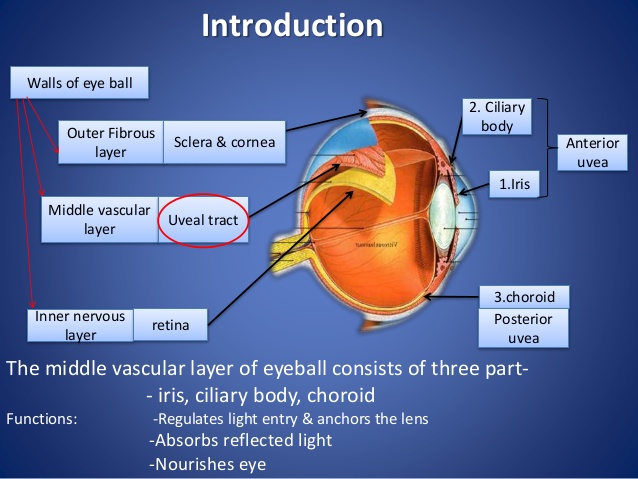
uvea [yoo-vee-uh] ExamplesWord Origin noun Anatomy.
- the vascular tunic of the eye, comprising the iris, choroid coat, and ciliary body.
Origin of uvea 1515–25; Medieval Latin ūvea, variant of Latin ūva fruit of the vine, grapeRelated formsu·ve·al, u·ve·ous, adjective Examples from the Web for uvea Historical Examples of uvea
In the coloration of the eyes it is necessary to distinguish two factors, the uvea and the pigment.
Maria Montessori
When the pigment is wanting or is very scant, the fundamental blue or greenish colour of the uvea is apparent.
Maria Montessori
It was plainly seen that God, in anger, was laying His hand heavily on Uvea; and lo!
Wild Justice: Stories of the South Seas
Lloyd Osbourne
British Dictionary definitions for uvea uvea noun
- the part of the eyeball consisting of the iris, ciliary body, and choroid
Derived Formsuveal or uveous, adjectiveWord Origin for uvea C16: from Medieval Latin ūvea, from Latin ūva grape Word Origin and History for uvea n.
1520s, from medical Latin uvea, from Latin uva “grape; uvula” (see uvula).
uvea in Medicine uvea [yōō′vē-ə] n.
- The vascular, pigmentary, middle coat of the eye comprising the choroid, ciliary body, and iris.
Related formsu′ve•al adj.
 Liberal Dictionary English Dictionary
Liberal Dictionary English Dictionary